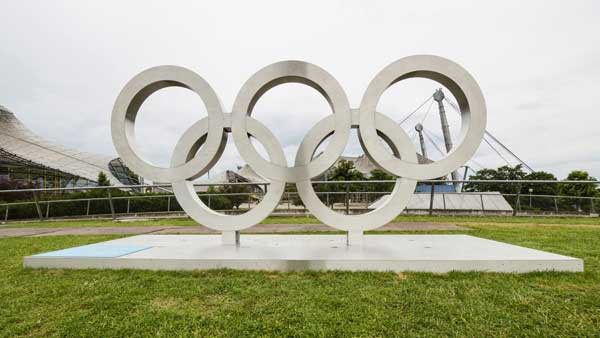Food practices in the Paris Olympics 2024, intended to reduce pollution, face adverse impact

[Image of Olympics Logo. Photo Credit: Unsplash]
The Paris 2024 Olympics organizing committee introduced an ambitious initiative focused on promoting a sustainable and less-polluting food diet for the the athletes;despite their efforts, this strategy did not prove successful.
This plan is part of a broader commitment to environmental sustainability, and it garnered significant attention as a potential new standard for international sporting events.
The Paris 2024 Olympics organizers have outlined a comprehensive food vision centered on sustainability.
The plan emphasized locally sourced, organic, and plant-based foods to reduce the carbon footprint generated from the event.
In fact, the committees doubled the amount of plant-based food on athletes’ plates compared to the previous measures, achieving a corresponding reduction in carbon dioxide emissions by half.
More specifically, the emphasis on sustainable dining is part of a broader strategy that includes waste reduction and, especially, minimizing food miles (the distance the food travels from farm to table).
Fortunately, the organizers successfully sourced more than 80% of the food locally and cut down on transportation emissions.
Despite its noble intentions, this well-intentioned effort is also forming challenges and criticisms among the athletes.
Athletes and stakeholders have raised concerns about the sufficiency of plant-based diets for meeting nutritional demands in order for athletes to achieve high performance.
Protein intake is considered a critical component for athletes as it helps maintain energy and build muscles.
However, reports suggest that some athletes are worried about the availability and quality of these essential sources of protein at the event.
Moreover, athletes accustomed to meat-based diets are skeptical about the shift to plant-based options, fearing its consequences for their performance.
Although protein alternatives such as legumes, nuts, and tofu were available, most athletes consider these sources insufficient substitutes for meat, and some suppliers are known to be struggling to meet the high demand for plant-based ingredients.
Cultural preferences add another layer of complexity.
Different countries have diverse traditions, and the universal application of a plant-based diet may not resonate with all the participants.
These concerns highlight the dilemma between the goal of sustainability and the practical needs of athletes who require specific nutrients to maintain their peak condition.
Additionally, several athletes have reported experiencing reduced muscle mass attributed to insufficient protein content in the provided meals.
The German men’s hockey team criticized the food served at the Olympic Village, describing it “catastrophic.”
In response to these concerns, various teams have taken proactive measures and even brought their own supplies of protein supplements to fill the nutritional gap.
For example, the Spanish swimming team brought its own chefs to ensure adequate protein intake, and the South Korean Olympic Committee set up a temporary center to provide customized meal boxes with meat to its athletes.
The urgent responses from all over the nation indicate participants’ significant dissatisfaction with the current food provisions and suggest that plant-based options are not meeting the high diet standards required by Olympic athletes.
While the Paris 2024 Olympics’ sustainable diet marks an innovative step towards environmental responsibility, it also highlights the necessity of balancing athletes' nutritional needs.
As the event progresses, it will be crucial for the organizers to address these concerns and provide adequate strategies to ensure sustainability and the well-being of all participants.

- Jaden Cho / Grade 11
- Asheville School

![THE HERALD STUDENT REPORTERS [US]](/assets/images/logo_student_us.png)
![THE HERALD STUDENT REPORTERS [Canada]](/assets/images/logo_student_ca.png)
